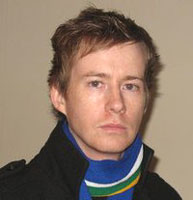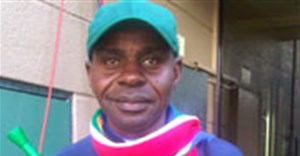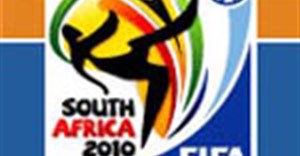Trending
World Cup and the media: lessons learnt, habits harboured

Across the land, talk is rightfully centred around these core issues, and, in this spirit of this enquiry, I think it appropriate to ask how well the local media performed during the world cup.
Right on the money?
Football, more than any other global sport, is enmeshed with cash, and lots of it. FIFA, clubs and administrators often opt to throw money at problems and, as many a fan has lamented, buy success.
And this is exactly what the SABC went for when it hired the likes of Kevin Keagan, Dwight Yorke, Paul Ince, Gerard Houllier, Luis Felipe Scolari et al as in-studio world cup analysts.
Newspaper reports claimed Scolari raked in R145 000 per shift while the others, on average, were supposedly paid 10 times more than the usual South African pundits. The usually cash-strapped broadcaster literally put its money where its mouth was by giving this stellar cast a platform to air their opinions.
SuperSport took a similar route and although both enjoyed record viewing figures, several problems were apparent, especially with the public broadcaster.
Limited English-language skills
Scolari, the esteemed world cup-winning coach, often struggled to relay his thoughts with clarity due to his limited English-language skills, while another 'star' pundit was the cause of severe embarrassment due to his faux pas of calling Italy's players the somewhat disparaging term 'Itais'.
Moreover, the recruitment of these foreign stars often left South African experts marginalised - again the symmetry between professional football and the media is worthy of comment as it is a common complaint in many countries that local footballers are sidelined to allow expensive imports the opportunity to play.
But, as in football, fans want to be dazzled by foreigners.
Writing in May 2010 on KickOff.com's forum, a user said, "I hope SABC is not going to embarrass us with the incompetent studio experts and commentators during the world cup." [sic]
Fans got what they wanted
I was intrigued then, although not entirely surprised, that when fans got what they wanted - these illustrious international studio guests - complaints abounded on Twitter and Facebook about the standard of analysis on TV.
I met the award-winning BBC journalist Ibrahim Sannie towards the end of the world cup and he wasn't convinced either. He bemoaned that expert opinion was often missing due to the gregarious nature of the studio discussions that were sometimes more akin to bar banter than anything else. That said, John Barnes and Coudjoe Amankwah were popular, with the latter earning cult status, as @phumesithole tweeted, "Coudjoe Amankwah.......LOVE him, SABC soccer analyst with that funky hair-style. he's so direct, love it" [sic].
SuperSport took great delight in replaying studio footage of another expert, former Ghana international Samuel Kuffour, celebrating the Black Stars' win over the USA. As the 2010 World Cup was always sold as Africa's tournament, it was to be expected that local media backed not only Bafana, but the continent's five other representatives.
Concerted effort
Although I did not read the Daily Dispatch, the newspaper offers an example of this approach as it made a concerted effort 'to wave a flag for their country' in the words of the said publication's editor.
With the 'law of neutrality' sometimes rendered superfluous, flaws in the coverage of the world cup emerged, especially when the cheerleading turned to jeering once Ghana was knocked out by Uruguay in controversial and acrimonious circumstances. Luis Saurez, the man whose handball denied Ghana and Africa a legitimate goal, was rightfully 'vilified' but subsequent writing often suggested that Uruguay were 'cheats' in general, which is a pity because the South Americans played some nifty football and were deserving of a balanced critique.
Nonetheless, many foreign journalists thought local papers did a good job in the immediate aftermath of that drama, with Ben Reiter of Sports Illustrated particularly impressed by a major weekly's headline 'Hand of the Devil' - a clever play on Maradona's equally notorious 'Hand of God' that helped knock England out of the 1986 World Cup.
Down to the wire or is content king?
Almost all media came up with a strategy to capitalise on the world cup. The Mail & Guardian made a big effort with its newfangled 2010.mg.co.za offering, as did Avusa with its TEAMtalk Media-powered Go2010 online portal [disclaimer: I am football editor of TEAMtalk Media]. I was taken aback in many instances by the visual appeal of selected websites as headlines and graphics online and in print (such as the Suarez one) were generally of an excellent standard.
While many sites and pull-out print supplements were aesthetically pleasing, there were issues with content. For instance, a diagram of the Dutch team printed in Avusa's Go2010 supplement listed a midfielder as a striker, which might seem like a trivial error, but it was the kind of error that enrages fans who expect the fundamentals of their favourite sport to be understood by so-called experts.
Similarly, one British journalist I met also expressed his disappointment at the amount of content from news agencies in South African papers. Seldom would this copy be used as a lead story, but this 'filler' meant variety and colour were often lacking on the back pages. It is a continuing trend in local football media coverage to see lightweight content used in a bid to 'bolster' the standard fare of match previews and reports.
Bold ploy
And I think it is at this point that the local written press could have rejigged its philosophy. There's no doubting television held sway, which meant most fans saw the majority of the on-field action. Nonetheless, a couple of local websites offered live text commentary for all world cup matches, a bold ploy considering the pervasive reach of TV.
Beyond live updates and reports, both the web-based platforms and newspapers ostensibly missed a wonderful opportunity to enliven the debate around technical aspects of football, which could have been achieved had editors and writers pushed for more insight, intelligence and wit, rather than the standard fare of straight-down-the-line or superficial analysis. Incidentally, this is a foible not lost on international football writers versed in writing at a deeper level.
The post-match autopsies from The Guardian, SI.com and Zonalmarking.net offered a template for the South African press to follow, but there was a complacency throughout as the football media was unwilling to waiver from the established, albeit archaic, formula that works in the local market (it's also worth noting the best written analysis in the papers generally came from syndicated columnists, ie not South Africans).
So, unlike TV broadcasters who pushed the envelope by spending money and going global, the majority of the written press failed to take the initiative and radically alter the way it does business. Although we saw some innovation as studios, newspapers and websites looked good, overall they fell short in the end. Just like Bafana Bafana.















![[2010 FIFA World Cup legacy] The true legacy of 2010 - part 2](https://biz-file.com/c/1107/76935-300x156.jpg)
![[2010 FIFA World Cup legacy] The true legacy of 2010 - part 1](https://biz-file.com/c/1106/76020-300x156.jpg)
![[2010 FIFA World Cup legacy] Is it all smoke and mirrors?](https://biz-file.com/c/1106/74857-300x156.jpg)



